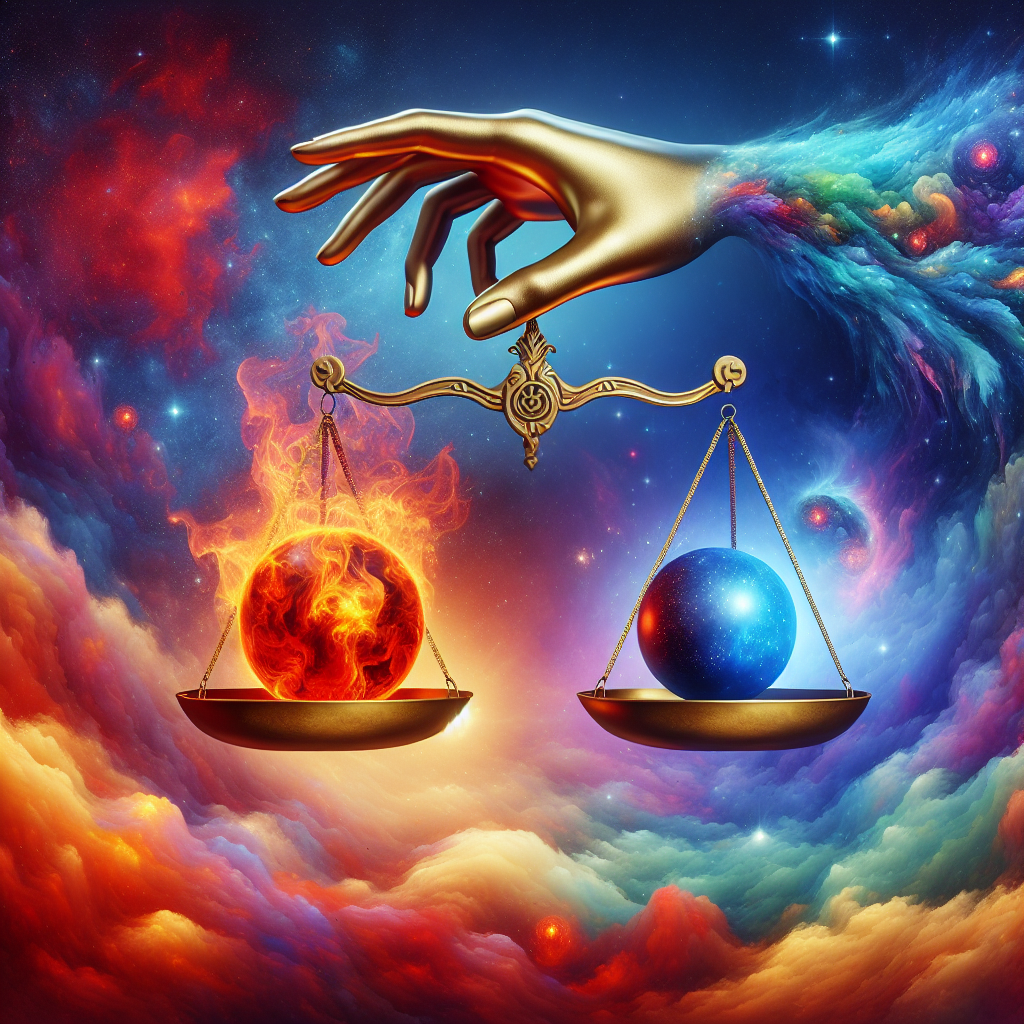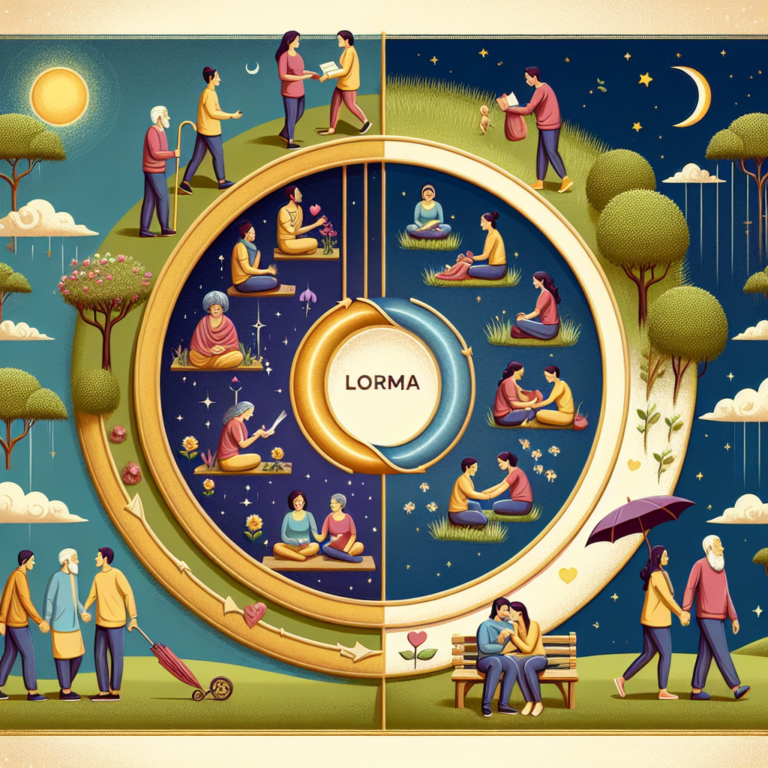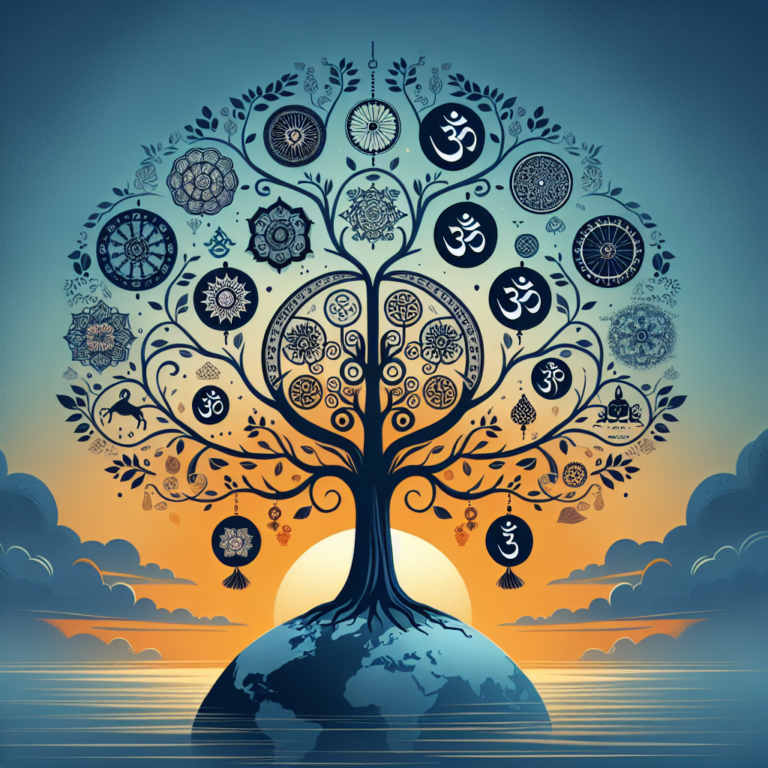In the interconnected web of life, actions and consequences are inextricably linked. The idea of karma, often rooted in Eastern philosophies, has transcended its religious origins to permeate popular culture. Among the myriad interpretations of karma, the concept of "instant karma" has gained considerable traction. This phenomenon represents the swift manifestation of consequences following one’s actions, often perceived as the universe delivering direct justice.
Understanding Karma: The Basics
Karma originates from the Sanskrit word "karman," meaning "action" or "deed." In various traditions, particularly Hinduism and Buddhism, karma denotes the principle of cause and effect, where an individual’s actions influence their future experiences. Good actions bring positive outcomes, while negative actions yield adverse effects. The interesting twist lies in the interpretation of time; not all karmic consequences are immediate.
Instant karma emphasizes the immediacy of repercussions — the notion that the universe acts quickly to rectify injustice. It serves both as a moral teaching and as a reminder of our interconnectedness. In this article, we’ll explore the concept’s cultural significance, how it manifests in real life, and why it resonates with so many individuals.
The Cultural Resonance of Instant Karma
The term "instant karma" gained popular fame from John Lennon’s 1970 song, where he captures the essence of the idea: what goes around comes around, and sometimes it happens in the blink of an eye. This catchy yet profound message struck a chord, evoking a sense of cosmic justice that many find comforting.
Within modern culture, instant karma is often illustrated through viral stories and anecdotes shared across social media platforms. These stories frequently depict individuals encountering swift retribution for their misdeeds — a bully tripping over their own feet, a cheat facing unexpected consequences, or someone who littered only to have the wind blow their trash back at them. Such narratives resonate because they reinforce our belief that the universe has our backs, creating a world where fairness and justice prevail in the long run.
Real-Life Instances of Instant Karma
Everyday Examples
The Rude Driver: Have you ever encountered an impatient driver who cuts you off, only to end up stuck in the next traffic jam? This small act serves as a reminder that one’s negative actions can quickly lead to self-inflicted consequences.
The Dishonest Employee: Picture an employee who relentlessly slacks off at work while taking credit for others’ efforts. It wouldn’t be surprising if, soon after, they find themselves missing an important project deadline and facing the repercussions of their inaction.
- Social Media Backfires: In today’s digital age, individuals often face instant karma through online interactions. Someone might post an inflammatory comment, only to be swiftly called out by the community, facing backlash and losing their credibility.
Significant Instances
The idea of instant karma extends beyond everyday occurrences; it has been illustrated in events of social justice. Consider a corporate executive who mistreats their employees. In a twist of fate, the company faces significant downturns, leading to their downfall. Such instances fuel the belief in a universal balance where positive actions lead to prosperity, and negative actions pave the way for their undoing.
Psychological Aspects of Instant Karma
The allure of instant karma can be attributed to several psychological phenomena. Firstly, people have an innate desire for justice and fairness. Witnessing instant karma can evoke feelings of satisfaction and relief, affirming our moral beliefs about right and wrong.
Additionally, the concept provides a sense of control in an often unpredictable world. In moments of helplessness, embracing the idea that actions bear immediate consequences can be comforting. It alleviates anxieties about unfairness and chaos, allowing individuals to feel empowered that, in time, justice will be served.
Instant Karma and Personal Growth
Embracing the principle of instant karma can also lead to personal growth. When individuals recognize the repercussions of their actions, they may be more inclined to reflect on their behavior and strive for positive change. The awareness that negative actions could result in immediate backlash encourages an impulse toward positive conduct.
Furthermore, this belief can foster empathy. Understanding that others experience their own karma reinforces the importance of treating individuals with respect and kindness. As a result, individuals are less likely to engage in harmful or malicious behaviors, fostering a more compassionate society.
Criticisms and Misunderstandings of Instant Karma
While the notion of instant karma is appealing, it is met with skepticism and criticism. One major argument against the concept is that it oversimplifies the complexities of life. It implies a straightforward correlation between actions and consequences, neglecting factors like privilege, circumstance, and timing.
Moreover, some critics argue that an over-reliance on the idea can lead to a sense of complacency, promoting a culture of blame rather than responsibility. If individuals believe that the universe will rectify all injustices, they may feel less compelled to advocate for systematic change or take personal accountability.
Conclusion
The concept of instant karma resonates with many as a powerful illustration of justice and the interconnectedness of our actions. Whether encountered in daily life or through larger societal narratives, the idea encourages reflection on our behavior and promotes compassion toward others.
Believing that the universe delivers swift justice can create a sense of comfort amid life’s uncertainties, reminding us that we are active participants in the web of cause and effect. While it’s vital to recognize the complexities behind every action, the principle of instant karma invites individuals to act with intention and integrity, ensuring that the energy we put out into the world is positive.
FAQs
1. What is instant karma?
Instant karma refers to the concept that actions have immediate consequences, often viewed as the universe delivering swift justice for one’s behavior, whether positive or negative.
2. Where does the idea of karma originate?
Karma has its roots in ancient Indian religions, particularly Hinduism and Buddhism, where it represents the principle of cause and effect related to one’s actions.
3. How does instant karma manifest in daily life?
Instant karma can manifest in various ways, such as a rude person facing immediate social repercussions for their behavior or someone experiencing the fallout of their dishonest actions shortly thereafter.
4. Is instant karma a reliable concept?
While many find comfort in the idea of instant karma, it is often criticized for oversimplifying the complexities of life. Circumstances, timing, and social constructs significantly influence how and when consequences unfold.
5. Can believing in instant karma lead to complacency?
Yes, an over-reliance on the idea may encourage passivity, leading individuals to expect the universe to correct wrongs rather than taking active steps towards personal responsibility or social change.
It seems like you want to provide a prompt for a specific task or discussion. Could you please elaborate on what you need? Whether it’s a writing prompt, a question, or a topic for discussion, I’d be happy to assist!, #Instant #Karma #Universe #Delivers #Swift #Justice, #Instant #Karma #Universe #Delivers #Swift #Justice, 1734569440, instant-karma-when-the-universe-delivers-swift-justice




